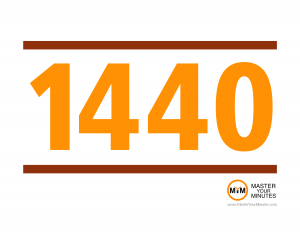
How do self-made multimillionaires think about time?
If you’re like most people who want to improve their time management, you’re always on the lookout for a list of tips, tools, and systems that will increase your productivity and add hours to your week. But if you’re like me, you’ve found the vast majority of these to be ineffective.
Many years ago, I went on a quest to discover how the most successful people managed their time. I started by asking friends who were doing well, went on to research thousands of working professionals, and then interviewed hundreds of highly successful people, including billionaires, accomplished entrepreneurs, Olympians, and straight-A students.
The Most Important Secret: Mindset
The single most important thing when it comes to time and productivity isn’t a tactic or a trick—it’s a shift in mindset.
All of the highly successful people I studied think about time differently. They experience time differently.
Kevin Harrington, best known as the inventor of the infomercial and one of Shark Tank’s original investors, had this to say:
“Before I decide to take on a new project, I analyze it…How much of my time will this take, and what is my financial upside potential. I create a ‘dollar per minute’ analysis, hopefully a million dollar per week upside.”
Kevin Harrington reveals the key. It’s not the million dollar per week goal—although that sure caught my attention!—but rather, he’s focused on minutes. Not days or hours—minutes.
The most successful people see time for exactly what it is: an extremely limited resource.
In doing so, they learn to guard their time even more closely than money. They realize that once an hour, minute, or second is gone, they’ll never get it back.
I still remember the day I learned this lesson for myself.
The Power of 1440
I was the founder and president of a digital learning company that quickly took off. Revenue doubling every year and all the related challenges: new hires, more sales, product launches, fundraising, and on and on.
As the boss, I believed in an open door policy. Some people would say I was overly detail oriented, which made people check in with me too frequently (who, me?). But in reality, that three-word question used to send chills of dread down my spine.
“Got a minute?”
I knew the value in being accessible to my employees. But as the fires to put out kept multiplying, so did the knocks on my office door. All of them followed by, “Got a minute?”
I quickly found entire days were being spent on other people’s priorities and problems as the requested minute-meetings inevitably turned into 30 minutes or more. My priorities, the company’s strategic priorities, were slowly but steadily being washed away by the never-ending torrent of “urgent” got-a-minutes.
Then one day, I had enough. I knew that if I didn’t make a change, I would continue to fall further behind. After some reflection, I printed a big 1440 on a piece of paper and taped it to the outside of my office door.
No other words. No explanation. Just “1440” in Arial, bold, 300-point font.
Every time I walked into my own office, I passed that giant “1440” sign as a reminder. Tick, tick, tick. I could not be careless with my minutes. Time was my most precious possession, and I couldn’t afford to let it slip away.
But something interesting started to happen. People continued to stop by and ask, “Got a minute?” I would say yes, and they would immediately ask, “So what’s that 1440 all about?”
I would explain that it was a simple reminder to me of the value of time and how I needed to “invest” each minute of my day very wisely. I always kept the focus on me, but the length of those got-a-minute meetings suddenly got shorter. One person heard my explanation and replied, “You know what, I don’t need to talk anymore. I just realized it can wait until the team huddle on Monday.”
I can only assume that my 1440 sign initially freaked people out. Kevin must be in a bad mood; he doesn’t want us talking to him anymore. Kevin’s a hypocrite…he says he has an open door policy but then insults us with that sign.
But the sign stayed up, and the novelty wore off. Soon I heard other people in the office talking about “only 1440 minutes” as they prioritized tasks or turned down invitations to irrelevant meetings.
The Lesson
Time can be your best friend or your worst enemy. For many, everything is a race against the clock, or a desperate attempt to fit in more than is humanly possible.
But Kevin Harrington and other highly successful people know that every day, they get a new deposit of time into the “bank”. Invest your 1440 minutes wisely, and they will pay rich dividends.
Download your very own ready-to-print 1440 Sign and Cards (a great reminder to you and others that we only have 1,440 minutes a day). Kevin Kruse is a keynote speaker and the author of the bestselling book 15 Secrets Successful People Know About Time Management.
Originally published on Forbes.
Photo: Kevin Kruse





